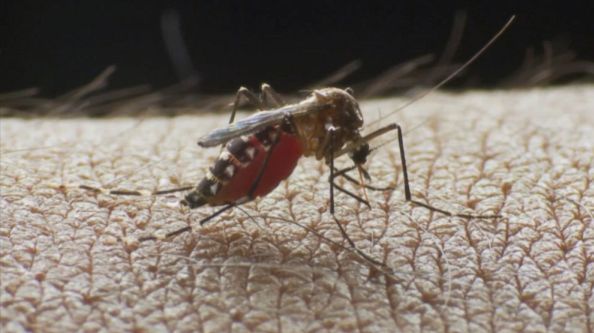Eastern Equine Encephalitis, also known as EEE, EEEV, and Triple E, has had outbreaks reported in six states according to CNN: Connecticut, Michigan, Massachusetts, Rhode Island, New Jersey and North Carolina.
As of Oct. 3, at least 11 people had died and more than 30 cases had been confirmed. These seemingly low numbers may not seem serious, but this is a big jump in the number of cases. Data from the U.S. Centers for Disease Control show a total of 30 deaths from the disease from the entire decade of 2009-2018.
Public health officials are also tracking the disease in animals like horses, goats, and other domestic creatures. Two endangered Mexican gray wolf pups at the Binder Park Zoo in Michigan succumbed to the disease this month, according to a statement from the zoo.
The good news, according to the CDC, is that you only have about a 5% chance of getting sick, even if a mosquito gives you the virus. But if you do get sick, you have a tough road ahead.
"Severe cases of EEE begin with the sudden onset of headache, high fever, chills, and vomiting," according to the CDC. "The illness may then progress into disorientation, seizures, and coma.
Approximately a third of patients who develop EEE die, and many of those who survive have mild to severe brain damage."
But ideally, you can avoid the virus altogether with a little mosquito prevention. There are many steps you can take to keep the bloodsuckers at bay, according to Sandra Gonzalez Gompf, MD, FACP, of MedicineNet. Here are her tips:
- Stay indoors at dawn, dusk, and in the early evening.
- Wear long-sleeved shirts and long pants when outdoors.
- Apply EPA-registered insect repellent sparingly to exposed skin and clothing according to manufacturer's instructions. An effective repellent contains 20%-30% DEET (N,N-diethyl-meta-toluamide). DEET in concentrations up to 30% are considered safe to use in pregnancy. Avoid products containing more than 30% DEET, which may cause side effects, particularly in infants and children.
- Picaridin is a newer repellent that is effective and about as long-lasting against mosquitoes as DEET at the same concentrations. It has been used in Europe and has been available in the U.S. since 2005. Unlike DEET, picaridin has no odor, does not damage synthetic fabrics and plastics, and is non-greasy.
- There are some repellents with essential oils like geranium oil that may be an option for some people, but there is much less data on duration of protection or reliability of protections against mosquitoes.
- B vitamins are not effective repellents against mosquitoes.
- Repellents may irritate eyes and the mouth, so avoid applying repellent to the hands of children. Insect repellents should not be applied to very young children (under 3 years of age) or babies.
- Spray clothing with repellents containing picaridin or DEET since mosquitoes may bite through thin clothing. There are permethrin products that can be applied to clothing that will remain effective through a few washes. For those who work outdoors or need extended protection, permethrin-impregnated clothing is also available.
- Whenever using an insecticide or insect repellent, be sure to read and follow the manufacturer's directions for use, as printed on the product.
- Take preventive measures in and around your home. Repair or install door and window screens, use air conditioning, and reduce breeding sites (eliminate standing water).
- Note: Vitamin B and "ultrasonic" devices are not effective in preventing mosquito bites.
Source: MedicineNet Health News.








0 Comments